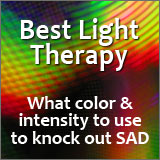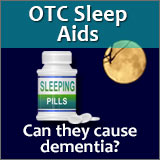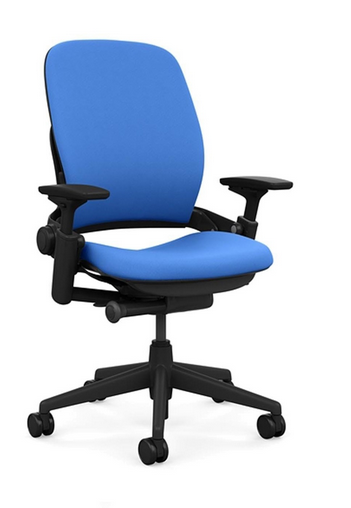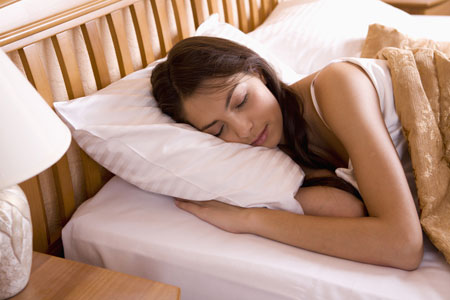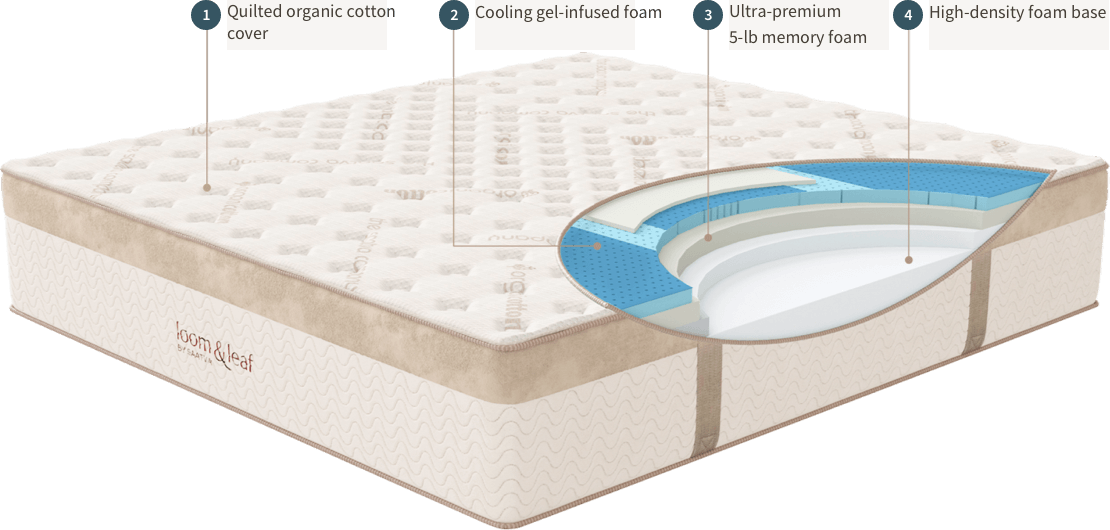Teenage Sleep: 8 Steps to Restful Nights
Step 5: Make sure your teen avoids caffeine
No doubt about it, caffeine can cause teenage sleep problems. Caffeine is found in a lot of places: soda, chocolate, hot cocoa, coffee, tea, and even some over the counter medications.
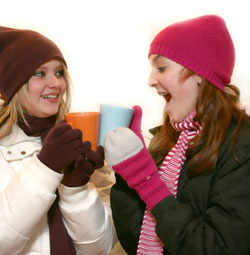
Excessive caffeine use during the day can lead to insomnia in teenagers...can make teenage sleep quality poor...which leads to daytime sleepiness...which then results in more caffeine the next day.
It's a vicious circle.
Teens need to monitor their caffeine use, and just as with adults, they need to stop using it early in the day. Probably at least six hours before they want to go to sleep...certainly no later than 4 p.m.
By the way, nicotine is also a stimulant and can disrupt teenage sleep cycles. (Sigh...what an unfortunate, stupid habit teen smoking is...)
Step 6: Help your teen find a bedtime routine
Most teens want to be healthy, happy, and successful. Nobody likes walking around everyday worn out and in a fog.
So reassure your teen that finding and getting into a bedtime routine that works for them will help them function better in school, sports, and all their activities of the day.
Just as we adults need to discover how many hours sleep we need to average every night and the best times to go to bed, teens need to do the same. Do they need 8 hours? 9 hours? Find out.
Establishing fairly consistent habits of going to bed and getting up at the same time everyday works wonders for getting a good night's sleep. Find what works and stick to it, even on the weekends.
One mistake many teens make is they sleep in much later on the weekends to try and catch up on lost sleep. This differs from their usual weekday routine of getting up earlier. When Sunday night rolls around, they then have a hard time getting to sleep at the right time.
So within reason, a teen should find a schedule that works for them and stick as close as possible to that routine every single day of the week. Sleeping in on weekends for more than two hours past their normal "get up" time should be avoided.
Step 7: "I wear my sunglasses at night"
Remember that 1984 song "I wear my sunglasses at night" by Corey Hart? Turns out, wearing sunglasses at night can help your teen get to sleep.
Light and dark have a powerful effect on our brains. Darkness helps with the release of melatonin and lets the brain know it's time for sleep. Bright light tells us it's time to be awake and active.
A teen needs to be exposed to as little light as possible starting at about an hour before bedtime. (The same goes for us adults too, by the way.)
Say your teen goes to bed at 11 p.m. By 10 p.m.:
- They should avoid television and its flickering light. There
should not be a television in your teen's room either. It's too tempting
a distraction and a bedroom should be for sleeping.
- Computers with their glaring lights should be off.
- Reading or journal writing should be done with the lowest light possible. A book light is perfect for this.
- The bedroom should be as dark as possible with the help of blackout curtains if necessary to keep outside lights out.
As for the sunglasses?
About an hour before bed, have your teen put on some wrap-around sunglasses to cut down even more light in preparation for sleep. (But not if they're out running around town! Only do this when they are safely at home.)
If the sunglasses are orange tinted, it's still possible to read with them on. They might even consider putting them on earlier in the evening when working on the computer to help block some of its light.
Step 8: Step into the light
When dawn rolls in, and it's time to get up, your teen needs to be exposed to light. They should turn on one light, then after a few minutes the next one, until the room is nice and bright.
Roll back the curtains or pull up the blinds to let the morning light in (obviously this won't work in the dark winter months). All this bright light lets your teen's circadian clock know that it's time to get going on the day.
I'm not going to get into light box therapy in this article, but teens who have a super tough time waking up in the morning may need light therapy. Talk to your doctor about this if that's your teen's problem.
Concluding remarks about teenage sleep
Trouble falling asleep and sleep deprivation are common in teens. The above 8 steps are good steps to take to begin helping your teen sleep better.
Keep in mind though that there could be deeper biological sleep disorder issues with your teen.
They may have
sleep apnea symptoms,
narcolepsy, depression,
restless leg syndrome symptoms,
or delayed sleep phase disorder, also known as
delayed sleep phase syndrome.
So when it comes to teenage sleep, it's always important to keep your
family physician informed if your teen rarely seems to get a good
night's slumber.
And here's one final important point:
Getting a new mattress for your teen may help them sleep better
Teenagers have a hard enough time getting to sleep at night without having to sleep on an older, lumpy mattress.
One of the easiest, simplest, and cost-effective ways to buy a mattress is from a company called Saatva. They are one of the pioneers in online mattress buying.
They come highly recommended and are super easy to work with. Plus, they offer a 120-day home trial to see if the mattress is the right one.
If you need a new mattress for your teen…or a new mattress for yourself, click this link:
Free white glove delivery and free mattress removal with any Saatva Mattress purchase.Research Sources for Teenage Sleep
- National Sleep Foundation Sleep in America Poll 2011
- Adolescents’s Sleep Behaviors and Perceptions of Sleep, Journal of School Health, 2009 May;79 (5):224-30
- Educating Adolescents About Healthy Sleep: Experimental Study
of Effectiveness of Educational Leaflet. Croat Med J. 2009 April; 50(2):
174–181. doi: 10.3325/cmj.2009.50.174.
- Excessive Sleepiness in Adolescents and Young Adults: Causes,
Consequences, and Treatment Strategies, Pediatrics Vol. 115 No. 6 June
2005
- Frontline: Inside the teenage brain from zzzz's to a's...
- The Insomnia Answer, Paul Glovinsky, Ph.D. and Arthur Spielman, Ph.D.
Continue Reading With These Helpful Articles
Return From Teenage Sleep Part 2 to Teenage Sleep Part 1
Sleep Experts Sound the Alarm: "Get Some Sleep Teens!"
16 Dangers of Teen Sleep Deprivation Part 1
16 Dangers of Teen Sleep Deprivation Part 2
Return To Sleep Disorders Home Page



